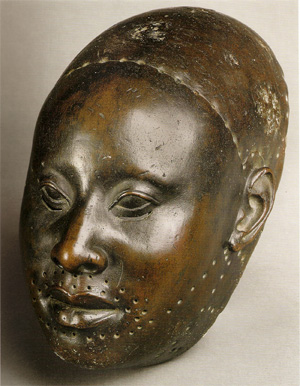Oworo tribe comprises of a group of people that reside in Oworo Land, Kogi State. They are, however, also settled in other areas such as Apata, Felele, Adogbe, Oyo, Osokosoko, Ogbongboro, Iwaa, Gbande, Akpomoba, Owara, Ohono, Oigahaki, Emu, Ayinoke, Kugboni, Kwara/Oko, Okonoke, Okpabu, Omowa, Lolo, Jamata , Ijiho, and Okpata.
Oworo Land is situated on the north-eastern part of Okunland in what is now the former Kogi Local Government of Kogi State. The land shares boundaries with the Nupes, Hausas, and Ebira-Kotos. Among the 32 towns and villages in Oworo Land are Agbaja, the headquarters and Obajana, where Dangote Cement factory is situated.
ORIGIN
According to oral history, the people of Oworo trace their descent to Ile-Ife. It is recorded that three brothers left Ile-Ife to go on a hunting spree around the present location of Oworo. They had a successful adventure and there declared “owo mi ro” which means, my hand is filled with blessings and that was how the name of the tribe came to be.
LANGUAGE
The language of the Oworo people is similar to that of the Yorubas. In fact, they speak a dialect of Yoruba and they speak the Yoruba language fluently. In addition, they also speak the various dialects of the Okun tribe.
However, despite the similarity between Oworo language and Yoruba language, the former does not have the ‘f’ letter of the alphabet. Therefore, the word, funfun (white) in Yoruba is pronounced as hunhun in Oworo dialect.
Furthermore, some words found in the Igbo language are also found in the Oworo diction. Examples are akpati (bag), bia (come), and oka (maize) which are found in both languages and mean the same things in the two languages.
NOTABLE HISTORY
Oworo has a notable history in Nigeria too. Igbo Nla is where Christianity took its root among the Oworos and so was privileged to have the first primary school built in their community by the Church Missionary Society (CMS) in the 1920s.
MONUMENTS AND TOURIST ELEMENTS
Firstly, Oworo Land is situated on a plateau. Secondly, there are two streams and one spring in the land and it is reported that the spring has never gone dry, ever.
One of the streams, Omu-Iye, is believed to have a therapeutic power whereas Omu-oke, the second of the two streams has a spiritual cleansing power.
CULTURE/BELIEF
Every three years, Olu-Iho (the mouth of a tunnel that links Ebere-Aba to Agbaja) is worshipped and offerings are presented to the deity by a matrilineal son of the Aba Ruling House. This triennial worship is usually done during the dry season and an indication that the offering has been accepted by the gods is the presence of rainfall even before the worshippers get to their houses. The absence of rainfall, however, signifies that the gods did not accept their offerings.
Also, the Oworos celebrate Agbo Masquerade festival every year between the months of March and April.
A large percentage of the Oworo people, however, are now either Christians or Muslims.
KINGSHIP
There are three main ruling houses in Oworoland, namely Abah, Ageto and Ajokpa with four king makers Maiyaki, Ndeji, Obadofin, and Eleso.
References
https://www.morenaija.ng/infopedia/oworos-kogi-state-history-oworo-land/
Feature Image: wikipedia

